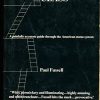My task here is to explore the positioning of what urban business evangelist Richard Florida has branded the “creative class,” and its role, ascribed and anointed, in reshaping economies in cities, regions, and societies. In pursuit of that aim, I will consider a number of theories—some of them conflicting—of the urban and of forms of subjectivity. In reviewing the history of postwar urban transformations, I consider the culture of the art world on the one hand, and, on the other, the ways in which the shape of experience and identity under the regime of the urban render chimerical the search for certain desirable attributes in the spaces we visit or inhabit. Considering the creative-class hypothesis of Richard Florida and others requires us first to tease apart and then rejoin the urbanist and the cultural strains of this argument. I would maintain, along with many observers, that in any understanding of postwar capitalism, the role of culture has become pivotal. (via Martha Rosler, Culture Class: Art, Creativity, Urbanism / Journal / e-flux)
